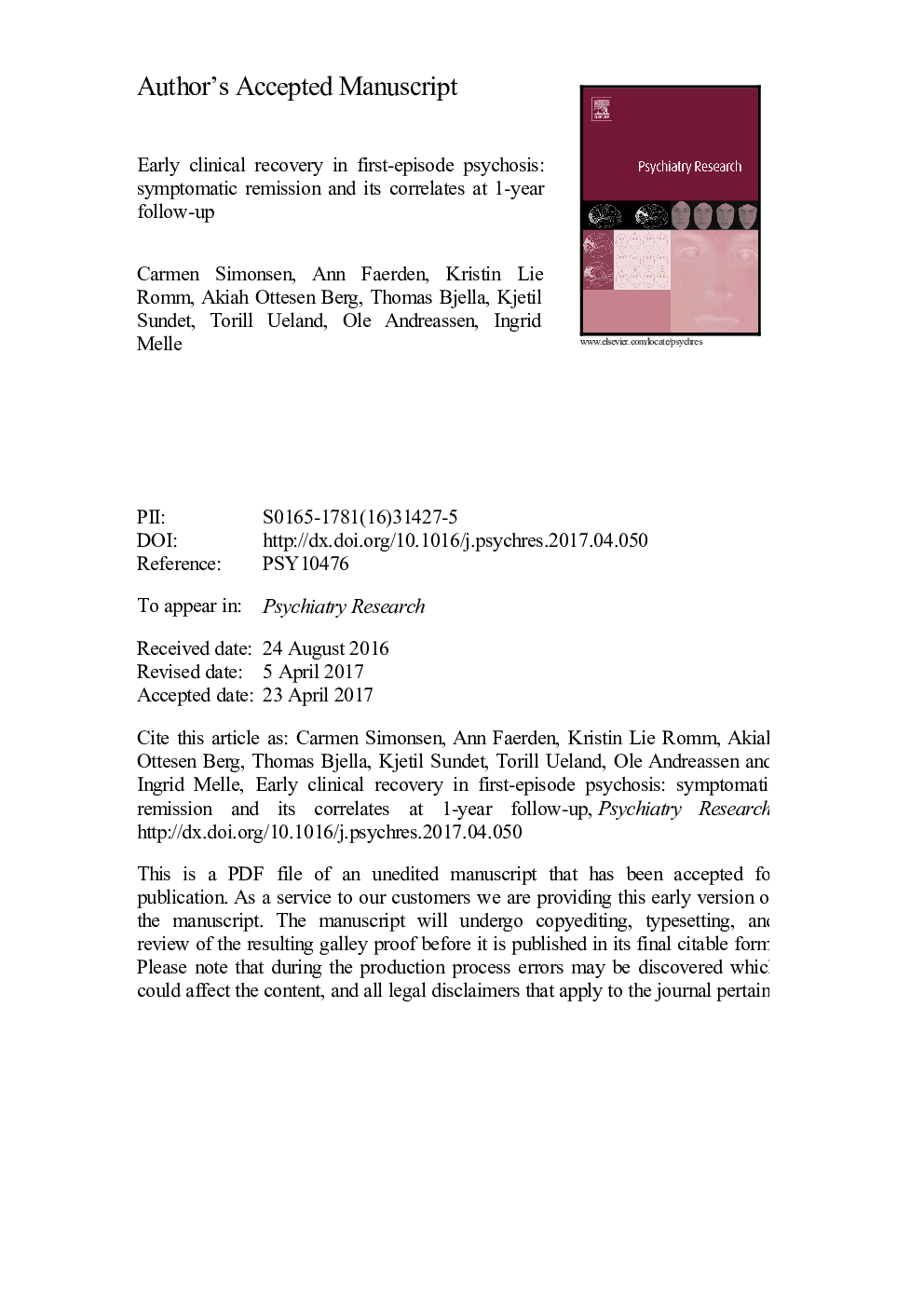| Article ID | Journal | Published Year | Pages | File Type |
|---|---|---|---|---|
| 4933128 | Psychiatry Research | 2017 | 22 Pages |
Abstract
The aim was to gain more knowledge about early clinical recovery in first-episode psychosis (FEP). The interrelationship between symptomatic remission, poor global functioning and neurocognitive impairment was investigated. FEP participants (n =91) from the TOP study were investigated at baseline and 1-year follow-up. Symptomatic remission was defined by internationally standardized criteria. Poor global functioning was defined as GAF-F score â¤60. Neurocognitive impairment was defined as 1.5 standard deviation below healthy controls on a neuropsychological composite score. Finally, early clinical recovery was defined as symptomatic remission during the last 6 months and functional remission (1. GAF-F score â¥61, 2. at least 50% study/employment, and 3. living independently). At 1-year follow-up 26% were in symptomatic remission, predicted by duration of untreated psychosis and baseline positive symptoms. Significantly fewer in the symptomatic remission group had poor global functioning compared to the non-remission group, with no difference in the rate of neurocognitive impairment. Finally, 14% were considered in early clinical recovery. They had the same rate of neurocognitive impairment as the remaining group. These findings imply that symptomatic remission and early clinical recovery can already be identified at 1-year follow-up, and that this is relatively independent of neurocognitive impairment.
Keywords
Related Topics
Life Sciences
Neuroscience
Biological Psychiatry
Authors
Carmen Simonsen, Ann Faerden, Kristin Lie Romm, Akiah Ottesen Berg, Thomas Bjella, Kjetil Sundet, Torill Ueland, Ole Andreassen, Ingrid Melle,
